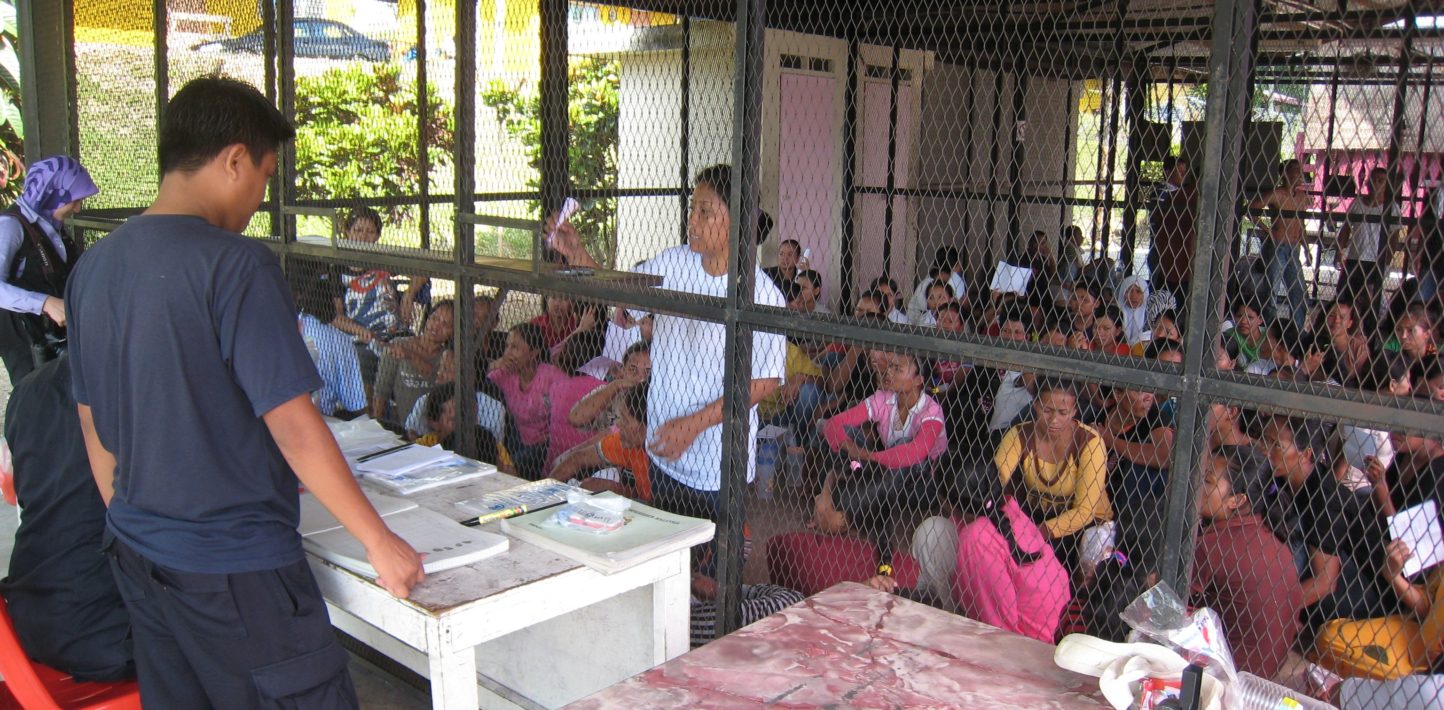Amnesty International Malaysia is aghast at the Malaysian government’s planned efforts with the
Myanmar military to deport 1,200 people back to Myanmar on 23 February 2021. Mass deportation
exercises carried out with little transparency contravenes Malaysia’s obligations to respect and
protect the rights of migrants and refugees, and risks endangering their lives. Widespread
crackdown on dissidents following the military coup in Myanmar on 1 February puts those due to be
deported at further risk of human rights violations.
“The Malaysian Immigration authorities claim their ‘repatriation program’ does not involve refugees
or asylum seekers, but how have they determined this if the UN has been prevented from accessing
people in immigration detention for over one and a half years?,” asked Katrina Jorene Maliamauv,
Executive Director of Amnesty International Malaysia. “The Malaysian government is recklessly
imperilling the lives of over 1,000 Myanmar people by deporting them under a curtain of secrecy to
a country in the middle of a coup marred by human rights violations.”
The Malaysian government has not permitted the United Nations High Commission for Refugees
(UNHCR) to access immigration detention centres since August 2019. The international body has not
been able to visit detention centres to identify asylum seekers and refugees, and facilitate their
release, leaving them to languish in captivity. The arbitrary and indefinite detention of migrants,
asylum seekers and refugees is in violation of international human rights law.
The Malaysian Immigration authorities claim their ‘repatriation program’ does not involve refugees or asylum seekers, but how have they determined this if the UN has been prevented from accessing people in immigration detention for over one and a half years?
Katrina Jorene Maliamauv, Amnesty International Malaysia
“The Malaysian government must ensure there is a guarantee of safety for returnees,” said Katrina.
“UNHCR must immediately have full access to the 1,200 people. Prime Minister Muhyiddin Yassin
must instruct the immigration department to work closely with UNHCR to ensure not a single person
seeking asylum, refugee or anyone who may be at risk of human rights violations is forced to return
to Myanmar. To do so would be in violation of the principle of non-refoulement, which applies to
Malaysia as part of customary international law.”
The planned deportation once again puts Malaysia’s immigration and refugee policies in the
spotlight. The Human Rights Commission of Malaysia (Suhakam) reported in 2018 that conditions in
immigration detention centres continue to be cramped, unsanitary, poorly maintained, and lacking
in basic facilities such as clean water and food. There have also been first-hand and witness accounts
of physical abuse against detainees. In August 2020, the government acknowledged that 23
detainees, including two children, died in immigration detention centres the first half of that year. In
October, the government revealed that 756 children were being held in these facilities, in violation
of the UN Convention on the Rights of the Child (CRC), which bars the detention of children for
immigration offences.
“Given horrific conditions in detention, it is not surprising that some people may feel their only
option is to return to Myanmar, even if they face risks there” said Katrina. “But the options for
people and their families cannot be between indefinite detention or putting their lives at risk by
returning to a possibly dangerous situation. Using indirect means to push people back to face the
grave human rights violations they escaped by crossing a border to seek safety is essentially
‘constructive’ refoulement.”
Throughout 2020, immigration officials and police have conducted raids against people in migrant
communities in Malaysia that have violated their rights and undermined COVID-19 preventative
measures.
In addition to this, according to UNHCR, as of early December 2020, 457 persons registered with the
organisation were detained in immigration detention, including 62 unaccompanied and separated
children. The numbers of individuals unregistered but who may have an asylum claim are currently
unknown to UNHCR as they’ve been denied access to detention centres since August 2019.
“The situation of those in immigration detention in Malaysia is horrendous. Beyond granting UNHCR
access to those due to be deported, the government must also allow it full access to all those
currently in detention facilities. The detention of people solely for immigration control is
unjustifiable. We call for the immediate release of refugees, asylum-seekers and migrants detained
for this reason. Refugees and asylum-seekers must be afforded additional protections, including full
recognition of their right to seek international protection,” said Katrina.
Background
The Malaysian government confirmed plans reported in the media to deport 1,200 people of
Myanmarese origin on navy ships provided by the country’s military on 23 February. On February 15,
the director-general of the Immigration Department, Khairul Dzaimee Daud said the deportation will
involve individuals who violated the Immigration Act 1959/63 and Immigration Regulations 1963,
including offences such as not carrying identity documents, overstaying and misuse of visit passes.
In a 17 February report in Nikkei Asia, the Immigration Department reiterated its plans to proceed
with the deportation. The report also cited an unnamed source in the department who
acknowledged that, “it would be difficult to distinguish undocumented immigrants from refugees
who have lost their UNHCR cards.”
For further inquiries, please contact Lily at [email protected]


